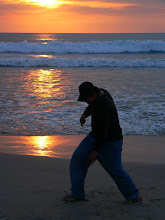 In a display of environmental posturing on both sides, Dell lodged a complaint with the advertising industry's self-governing oversight board: The National Advertising Division of the Council of Better Business Bureaus (NAD). The claim? When Apple says it has the "world's greenest family of notebooks," family could be taken to mean all models of MacBook past and present -- including models that weren't built with the environment in mind.
In a display of environmental posturing on both sides, Dell lodged a complaint with the advertising industry's self-governing oversight board: The National Advertising Division of the Council of Better Business Bureaus (NAD). The claim? When Apple says it has the "world's greenest family of notebooks," family could be taken to mean all models of MacBook past and present -- including models that weren't built with the environment in mind."Common industry usage of 'family' refers to a particular model or group of models, and not the entire notebook line," argued Dell, according to a post on the New York Times' "Green Inc." blog. Dell also complained about Apple's use of gold EPEAT ratings -- an award that many of Apple's competitors have also earned.
Standing behind their claim, Apple effectively said, "that's right, deal with it": Family, in the context of the ad "refers to its whole line of notebooks, taken in toto, [and] not a particular model or group."
The NAD said there was no problem with Apple communicating its EPEAT ratings to consumers, and commended the company for its commitment to creating an entire line of notebooks that meet the highest EPEAT ratings, according to the Wall Street Journal.
Even so, the NAD suggested that consumers could believe that "family" means a line of products (and not all the products) that a company makes. They recommended that Apple use direct comparisons between MacBooks and competitor notebooks to clarify their claims of environmental friendliness. They also recommended that Apple avoid the use of world's greenest "given the potential for overstatement." Apple? Overstatement? That's unpossible.
Apple was happy with the conclusion, with PR spokesman Steve Dowling telling the New York Times that the NAD had confirmed that MacBooks are indeed the world's greenest notebooks when compared to other manufacturers' entire product lines. It appears that Apple has taken to using the word "lineup" instead of "family" on its website.
Dell issued a statement, saying they "commend the NAD for their part in helping ensure companies represent their products' environmental attributes accurately." Dell has previously lodged advertising complaints against Lenovo, and last year the company had to stop using the slogan "the world's most secure notebooks."






No comments:
Post a Comment